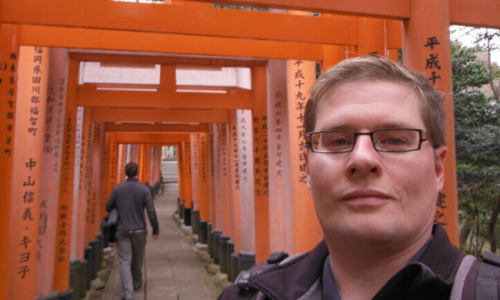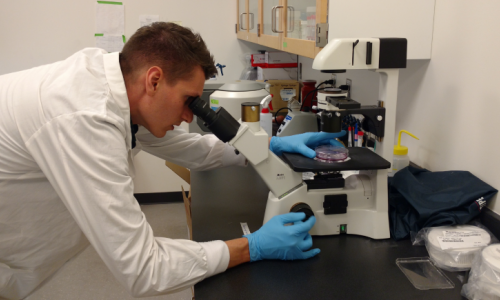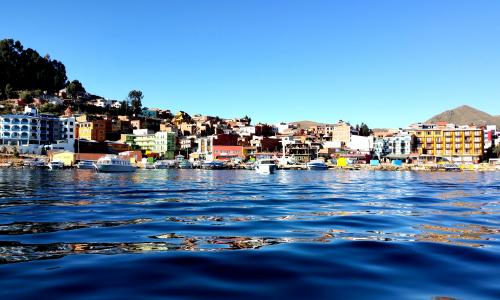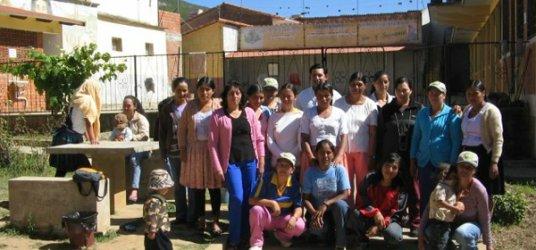
Since its launch in 2005, the Students for Development (SFD) program has been supporting senior-level Canadian university students' participation in internships for a minimum of three months in developing countries and in emerging economies.
On behalf of International Co-op, Melanie Woo got the chance to speak to Isabel regarding her SFD experience. Isabel went on the SFD program in Summer 2011 where she worked with an organization called ICO (Instituto de Capacitacion del Oriente) in Bolivia. Her internship in Bolivia was the first time she’d lived and worked in a country where she did not originally speak the language, which created challenges for her. This internship opportunity offered her enriching and irreplaceable experiences for her. Read about Part 1 of Isabel's Bolivia Adventure: An Irreplaceable International Experience.
What impact did you make on the community?
I think the people I met, especially the peasant women in remote mountain communities, were just as curious about me as I was about them. We exchanged information about ourselves, and the places where we lived. I developed a close relationship with some of these women and we were all sad when I had to leave. What probably impacted these women were the questions I asked them during my interviews. I was doing research work on the vulnerability of these women to the effects of climate change in their mountain communities. This was the first time they were ever consulted about this and I think some of my questions made them more aware of what was going on with their environment and how this was affecting them. They got the chance to voice their opinions.
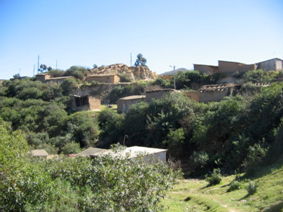
Did you receive any financial support?
Yes, I received financial aid from SFU, through CIDA. Four months is a long time to be living in temporary housing and having to eat out most of the time. Also, Bolivia is very far from Canada, so the plane fare was expensive. The CIDA funding made it possible for me to get there and back, and pay for my basic needs (such as lodging and food). I felt more at ease to do my research knowing that these were being covered by the funding.
How did you gain or improve your intercultural skills?
Because I initially could not understand much of the language, I learned to be very observant of people’s ways. I kept an open mind and tried not to look at the local culture through a ‘western lens’; instead I appreciated our differences. Later on when I could understand the language more, I spoke with people around me and we exchanged ideas on our different customs. It was very fascinating.
Did you get time to do other activities?
When I went to visit the remote mountain communities, the actual trip getting there was an adventure for me. I did not consider it work; rather, it was fun time. I found the Bolivian landscape varied, with its high mountains, deep valleys, desert-like areas with giant cacti, and wide and narrow rivers that we would cross in a truck. When I missed the city I would take public transport and go to Sta. Cruz - a 5-hour drive away – on some weekends. There were more restaurant choices in the city and more coffee shops too.
Favourite food in your city / country?
My favourite foods were the fresh buns sold in the market everyday, deep-fried empanadas filled with local white cheese (these are more like what we call here, beavertails, except it is stuffed with cheese), and salteñas (what we call here as empanadas, stuffed with meat).
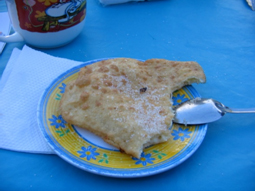
What was the best thing about the city/country you worked in?
I found the Bolivian landscape very beautiful, and the people were very welcoming. I liked their relatively simple life, without the many technological distractions we have in the west. I found the men and women I worked with who were attending the school, to be very keen students. They listened to every word of the teacher. When I consider how much time and effort these people go through to get to the town from their mountain communities (they would walk hours up and down mountains to get to a designated spot where a bus picks them up to go to town), I find it amazing the lengths they go through to attend school. Most women even have young children in tow.
What was housing/accommodation like?
I mostly stayed in hostels when I was in the city, but in the town where I was based, I stayed in the NGO compound. It was comfortable, except for the rare times when the cold weather came. There is no indoor heating in most of Bolivia, so it is as cold inside a room as it is outside. I learned to layer my clothes (during the cold nights I could have as much as 5 layers). When I was up in the mountain communities, accommodation was more basic – sometimes in adobe houses with dirt floors; at other times in small ‘offices’ that had a bed or mattress on the floor. Although these places had flush toilets, these were usually located separate from the house.
What was one of your most memorable moments?
On my last day in Bolivia, the NGO I worked for honoured me with a surprise office get-together where they thanked me profusely for the work I had done. They presented me some mementos that they obviously had gone out of their way to have done. It was a very touching moment because up to that point I had not really thought much about the value of my research. I was especially honoured when the chairman asked my permission for them to use my research to further their studies on the women in the communities.
Were you able to make valuable connections/ networks while abroad?
I acquired valuable friends and memories but not work connections/networks that I could possibly use outside of the Bolivian context.
Has this experience abroad changed your career or educational goals?
I have always wanted to do development work abroad, and this trip further reinforced this goal. I am all the more confident that this is the path that I will pursue.
What is next for you?
I think I will rest for about a year because I have been in school for the past 8 years, without any breaks. After a year, I will actively look for development work abroad.
What would be the one piece of advice you would give to students who are thinking about the SFD program?
Have an open mind and you’ll be surprised what’s in store when new doors open.
Beyond the Blog
- To Learn more about opportunities like Isabels, visit the International Co-op Page.












